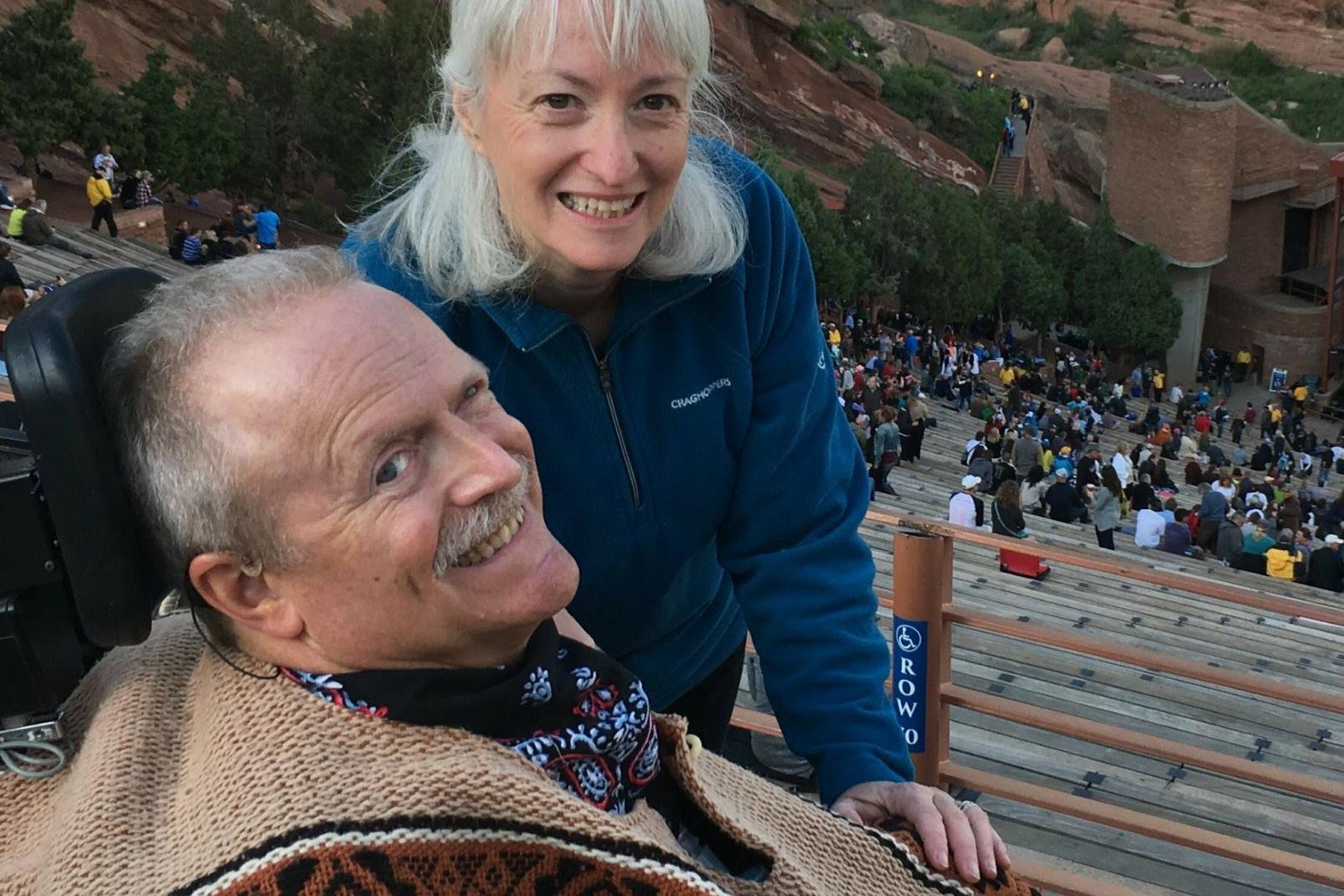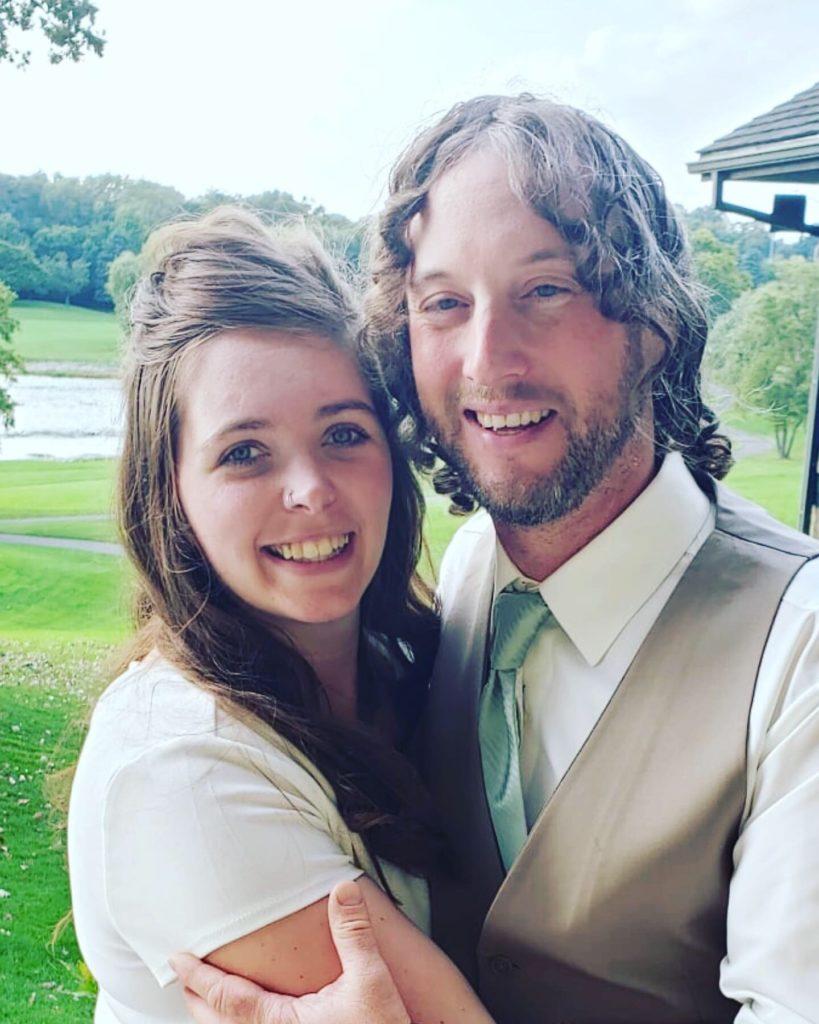
There’s no question about it — the COVID-19 pandemic can be scary for anyone.
For people living with disabilities, there are extra challenges and extra fears.
“The 80 percent of people that get mild symptoms, that's not our community,” said Julie Reiskin, Executive Director of the Colorado Cross-Disabilities Coalition.
The organization advocates for people with any kind of disability — physical disabilities, mental illness, and those with chronic illnesses or long-term injuries.
She says people with disabilities may be immunocompromised or unable to access necessary medical supplies and equipment. During the pandemic, the Coalition has been making sure that people across the state with disabilities have access to accurate information about COVID-19. They’ve dedicated part of their webpage to dispelling rumors about the virus, like that it can be transferred through mosquito bites, and sharing information about how to get emergency food access, as well as financial advice.
They’re also examining the impact of moving most services to drive through, and suspending public transportation in some areas.
“We have a lot of people who don’t drive,” Reiskin said.
As challenges arise for the community, Reiskin said her organization has been working closely with Gov. Jared Polis’ administration. Policymakers have been largely receptive and understanding of the community’s needs.
For example, Colorado’s Medicaid program for working adults with disabilities would usually suspend program benefits if an individual does not work for ten or more days. Reiskin says she’s working with the administration to relax those rules, and they have been understanding.
“The last thing we need is compromised people out there trying to find jobs so they can keep their health care,” Reiskin said.
Beyond that, the Colorado Cross-Disability Coalition has been answering questions and trying to be as supportive as possible.
“We do have a lot of people that are terrified,” Reiskin said. “Because historically in this country, when there have been disasters, people with disabilities have not fared well.”
In Edwards, a mountain town two hours west of Denver, Karyn Anderson is trying to navigate the pandemic with added challenges. Eagle County has seen a fifth of the state’s presumptive positive cases of COVID-19.

Anderson is blind, and is currently caring for her husband who has bacterial pneumonia.
He tested negative for the virus, but was told to isolate at home anyway.
Anderson is trying to balance caring for him while working remotely as a program director for a non-profit that works with seniors and their caregivers. She’s also trying to stay home and avoid bringing anything into the house that could make her husband sicker.
But little daily tasks have become increasingly difficult.
Her neighborhood doesn’t do home mail delivery. Normally, residents drive to the post office to get their mail.
“That’s an issue,” Anderson said. “Because I can’t go get the mail … [and] my husband can’t do it right now at all.”
And a quick trip to the grocery store is almost out of the question. She could take the bus, but the neighborhood can be difficult to navigate.
“It’s not the easiest for a blind person up here,” Anderson said.
She’s really valued people reaching out to her with offers to help.
Recently, the director of a local food bank got in touch and offered to drop off some food.
“I was like, oh my gosh,” she said. “That’s one person that just reached out, and that’s amazing.”

The pandemic is also bringing extra stress to those who care for high-risk people, like Sydnie and Matt Larson who live in Routt County.
They’ve taken every precaution possible to protect their six-year-old daughter, who has chronic kidney disease and is immunocompromised.
But Matt’s job relies on him doing service calls inside peoples’ houses — which means he’s at a greater risk of being exposed to COVID-19, and then bringing it home to his daughter.
He has scheduled two weeks of paid leave, but if he has to take more time off, the family’s finances will take a hit.
So for now, he plans to go back to work, even with the risks.
“[That’s] actually really terrifying,” Sydnie said.
The Larsons have reached out to their elected officials in hopes of bringing attention to the plight of families who are working while caring for immunocompromised kids.
But they say they haven’t seen definitive action being taken.
“It’s just not a fair situation to put anybody in,” Sydnie said. “Like, choose your mortgage payment or your daughter’s health.”
In Boulder, Robin Bolduc cares for her husband, Bruce Goguen, who has advanced multiple sclerosis. Goguen is on a ventilator and requires 24-hour care.
If he were to contract COVID-19, his odds of surviving “are probably close to zero,” Bolduc said.
So Goguen, who usually volunteers on Flagstaff Mountain in Boulder and loves to entertain, has been at home recently, with no visitors allowed.
“I’m a little bored, stuck in the house,” Goguen said.
Robin says the pandemic is almost giving her PTSD.
In 2009, their 12-year-old son died after contracting the H1N1 virus while recovering from surgery in the hospital.
“We didn't take the precautions we were taking now,” Bolduc said. “And so I'm really happy we're taking these precautions to reduce the risks of me losing someone I love again to a pandemic.”
As COVID-19 continues to sweep through the country, people with disabilities and their caretakers certainly have a lot of needs and concerns.
But Reiskin, of the Colorado Cross-Disability Coalition, wants Coloradans to see beyond those needs.
“We should be considered, not just people who need stuff, but a resource,” Reiskin said. “We have a lot of people, quite frankly, who are used to living without a lot. We have people who, because of their disability-related issues or lack of resources, have survived being homebound before. So we should be looked at as a resource.”








